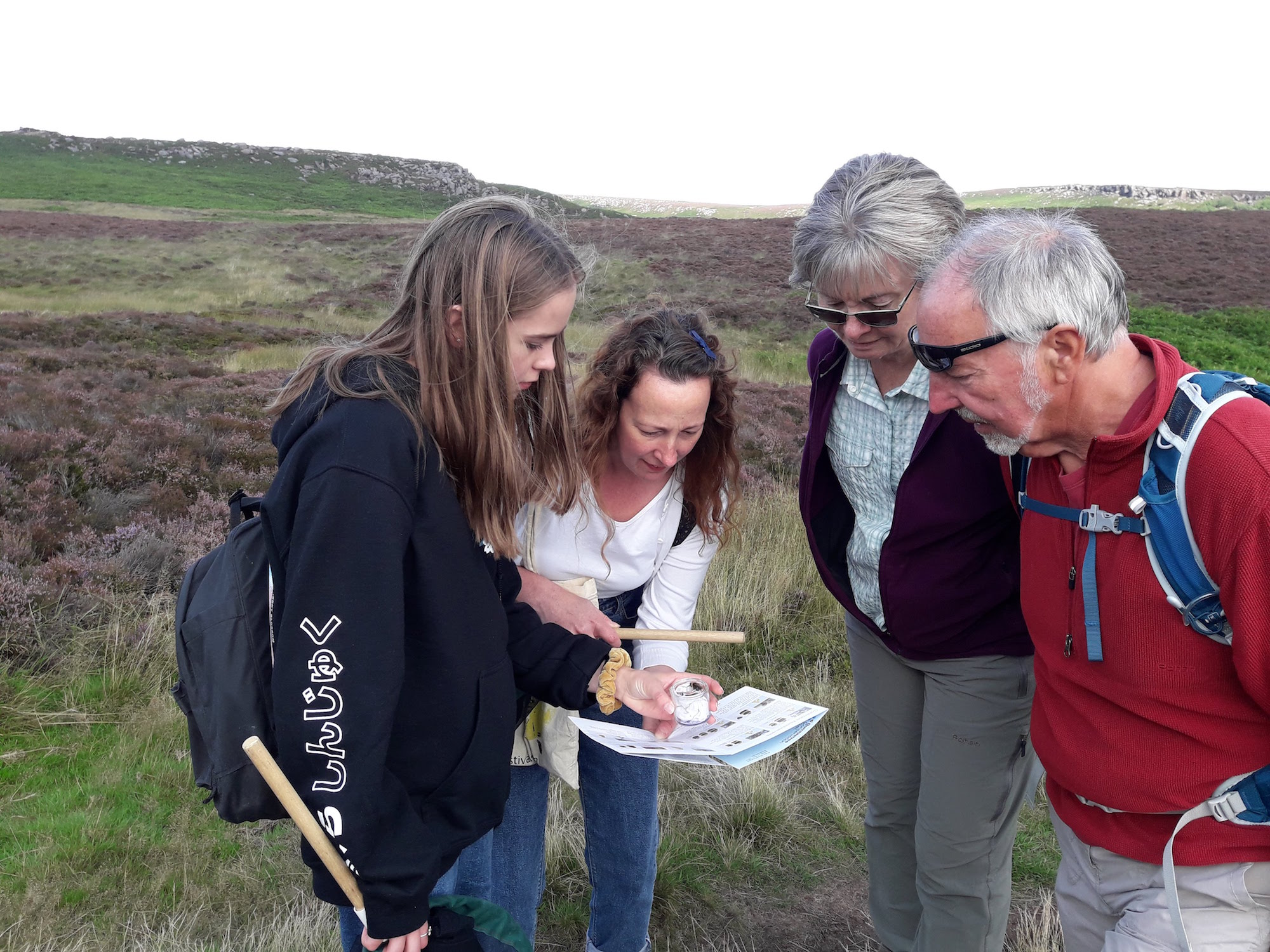New research competition challenges 11-19 year olds to help save the UK’s bumblebees
School and college students across the UK are being challenged to generate new scientific discoveries to help bumblebees
School and college students across the UK are being challenged to generate new scientific discoveries that could be used to help protect the country’s struggling bumblebees, though a competition being run by the Bumblebee Conservation Trust, with support from the National Lottery Heritage Fund.
As part of the conservation charity’s Big BeeWalk Data Research Competition – which runs from 5 November 2019 to 7 February 2020 – hundreds of thousands of bumblebee records gathered over the past decade are being made available to students for the first time.
Those taking part will have access to the records of almost 400,000 bumblebees, gathered since 2010 through the Trust’s BeeWalk national recording scheme. This citizen science survey – in which volunteers identify and count bumblebees they see while walking the same route monthly from March to October – builds a national picture of bumblebee health, and provides early warning of declines.
The vast set of BeeWalk data includes information on different bumblebee species and factors such as the weather, location, habitat type, and time of day of sightings – allowing a huge range of new and different research questions to be analysed, from how temperature affects bumblebee behaviour to how availability of specific plants can increase bumblebee numbers.
“By drawing on our unique BeeWalk data and using fresh thinking to design their own innovative research projects, students will be able to get involved in real-life science and develop skills desirable to universities – while potentially producing findings that could be used to boost practical conservation action to help bumblebees,” said Andy Benson, Education Officer at the Bumblebee Conservation Trust.
“It’s important because bumblebee populations have crashed in the UK over recent decades. We want students to think outside of the box and help shed new light on these remarkable insects whose hard work pollinates so many of our fruit and vegetables. The more we understand, the more we can do to reverse the plight of the bumblebee before it’s too late.”
The national curriculum-linked competition is also a chance for schools to apply some of the amazing science they have already been teaching their students in a real-life context. Students aged 11-19 across the UK can take part – working on their own or as part of a team, to analyse the data, create their own research project and then submit their research as a fully fledged academic paper.
There will be four prize categories – most innovative project, most rigorous methodology, best presentation and overall winner. Each school can make more than one entry, as long as each entry is by different students. To enter, visit bumblebeeconservation.org.
Each winner will receive a certificate and a copy of the Bumblebee Conservation Trust’s book ‘Bumblebees – An Introduction’, and their research will be published on the Trust’s website. The overall winner will have their work published in the 2019 BeeWalk annual report, and their school will win £250.
The UK-wide competition has been designed through the Bumblebee Conservation Trust’s Pollinating the Peak project, which is taking action for bumblebees in the Peak District and Derbyshire, as well as supporting the Trust’s national initiatives such as the new competition.
Anne Jenkins, Area Director for the National Lottery Heritage Fund in the Midlands and East, said: “It’s wonderful to be supporting this competition thanks to the generosity of National Lottery players. We hope it will help inspire the next generation of scientists and conservationists, while helping students learn about the importance of bumblebees and how to help these struggling pollinators.”
The BeeWalk surveys have also strengthened understanding of threats facing bumblebees, including land use changes or climate change. With loss of flower-rich habitat the biggest threat to bumblebees’ survival – only three per cent of UK wildflower meadows remain compared to before World War II – the findings have also underlined the importance of making gardens, parks and green spaces bumblebee-friendly.
Press release distributed by Pressat on behalf of Bumblebee Conservation Trust, on Tuesday 5 November, 2019. For more information subscribe and follow https://pressat.co.uk/
Bees Bumblebees Wildlife Nature Biodiversity Science Education Schools Charities & non-profits Education & Human Resources Environment & Nature
You just read:
New research competition challenges 11-19 year olds to help save the UK’s bumblebees
News from this source:


